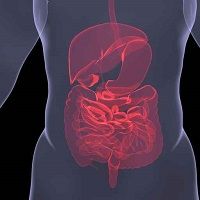Article
Fecal Transplantation More Successful Than Previously Thought
Author(s):
Results of a small study suggest that fecal microbiota transplantation appears to be more successful for treating Clostridium difficile infection than previously thought.

Results of a small study suggest that fecal microbiota transplantation (FMT) appears to be more successful for treating Clostridium difficile infection (CDI) than previously thought. Indeed, the study investigators found that healthy changes to a FMT recipient’s microbiome remain for as long as 21 weeks following the transplant.
The study, published in the March 30 issue of Microbiome, adds to previous research that has shown the fecal microbiota of FMT recipients to resemble that of their donors. FMT was actually developed as a method to treat CDI and has been shown to be successful in patients who experience repeat infections. For FMT, fecal matter is collected from a donor and then purified and mixed with a saline solution before placement into the recipient typically via colonoscopy.
Despite prior findings and the widespread use of FMT, data have been lacking on the stability of the fecal microbiota following FMT.The current study reports on short- and long-term changes following FMT and kinetic visualization of fecal microbiota composition in patients with multiple recurrent CDIs that were refractory to antibiotic therapy and treated using FMT.
For the study, senior author Michael J. Sadowksy, PhD, Co-director of the Microbial and Plant Genomics Institute and a professor in the department of Soil, Water and Climate and the BioTechnology Institute at the University of Minnesota, and colleagues collected fecal samples from four patients before and up to 151 days after FMT. Daily collections were made until 28 days, followed by weekly collections until 84 days after FMT. Whereas all patients received fecal microbiota from the same, pre-qualified donor, three received freshly prepared microbiota from fecal matter and one received fecal microbiota that had been frozen.
Along with colleagues at the University of Minnesota, University of Colorado, and several research institutes in Colorado and Minnesota, Sadowsky compared the pre- and post-FMT fecal microbial communities from the four study participants, as well as from 10 other patients who experienced recurring CDIs, to the sequences of normal controls as described in the Human Microbiome Project. Changes in fecal bacterial composition in FMT recipients over time were also assessed and compared to changes observed within samples from the donor.
The study wrote that that “FMT resulted in rapid normalization of bacterial fecal sample composition from a markedly dysbiotic state to one representative of normal fecal microbiota.” At day one after FMT, recipients’ microbiome appeared most similar to the donor’s implant material. However, the composition was found to diverge-variable at later time points, as did the donor microbiota. Despite this, FMT recipients’ fecal samples remained within the spectrum of fecal microbiota characterized as healthy by the Human Microbiome Project.
“Our study shows that there are both short- and long-term changes in the fecal microbiome following transplantation,” said Sadowsky. “The diversity and types of microbes present fall into a cloud of possibilities represented by those of ‘normal fecal microbiota.’ While we have many similarities in fecal microbiota among humans in general, there are individual differences that make us all unique but do not effect apparent gut functioning.”





